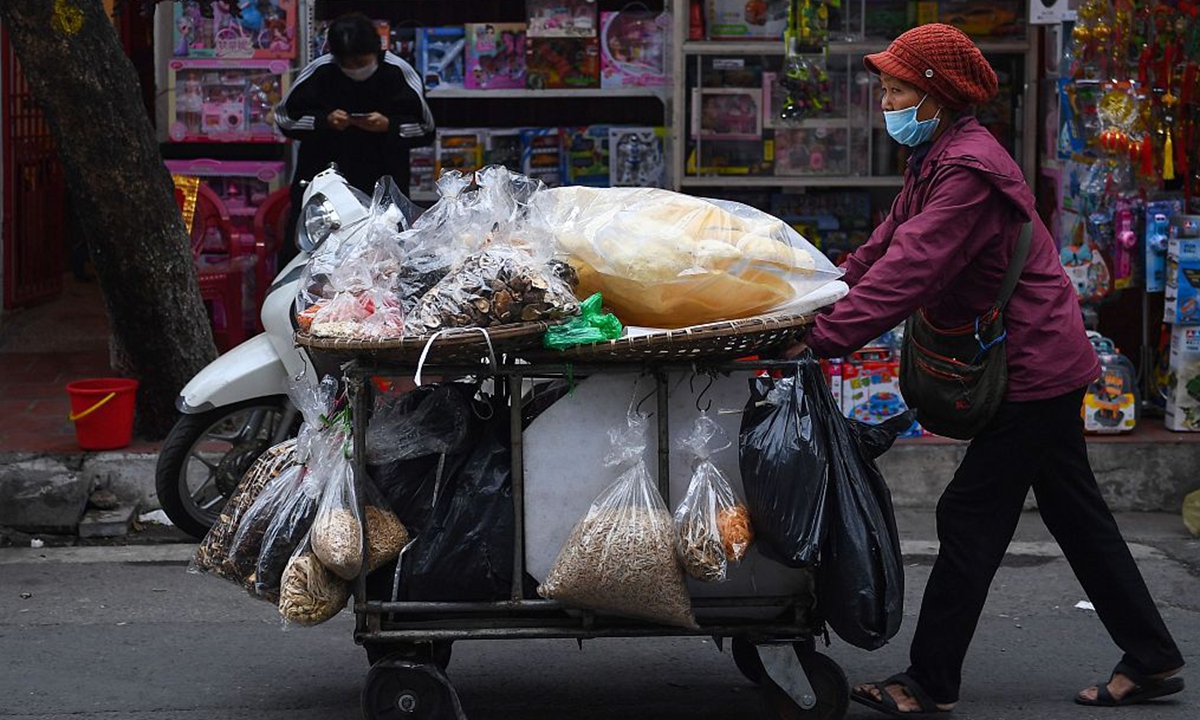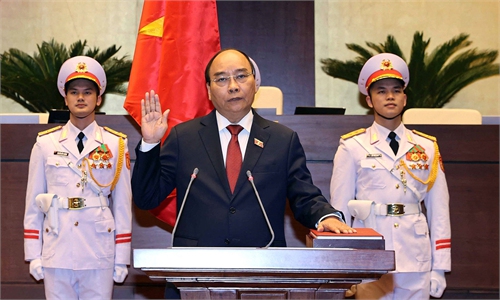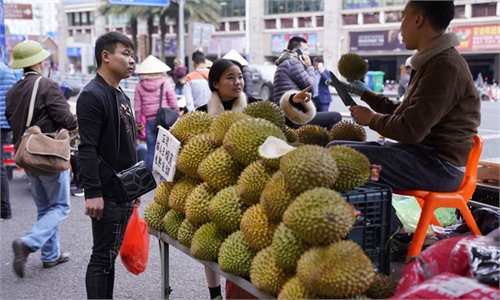Some countries relaxed restrictions too early leading to outbreaks in Asia: expert of China's CDC

A street vendor pushes her cart full of dried goods in Hanoi, Vietnam on January 28, 2021. Photo: CFP
The anti-epidemic measures should not be relaxed before there is a clear sign that the pandemic is under control, an expert from the Chinese Center for Disease Control and Prevention (Chinese CDC) noted Tuesday after five Chinese travelers were confirmed to be infected with variants detected in India after returning from Vietnam.
Some countries have let the guard down and celebrated too early. They relaxed public health measures and got slow in promoting vaccination leading to an expanding epidemic in Asia, Chinese CDC expert, Shao Yiming, said on Tuesday during an interview in response to questions about the five imported cases.
The five cases were confirmed to be positive during the quarantine that started on April 28 in Pingxiang, South China's Guangxi Zhuang Autonomous Region, after returning from Yên Bái, Vietnam, Xinhua News Agency reported on Tuesday.
The report said that the five people went to study in Yên Bái on April 9 but did not provide further details.
The travelers were put under quarantine between April 9 and 22 in a local hotel in Yên Bái which, according to epidemiological investigation after the confirmation of their infection, had reported imported cases of the variant from India, Xinhua said.
The five travelers have received treatment and now are in stable conditions. They have not had any contact with local people and no local infection has been detected so far, according to Xinhua.
Noting the recent discovery of infections by variants from India in Vietnam, the Pingxiang government announced on Friday it will enhance border control to prevent imported cases and will require a quarantine period of 21 days for any traveler coming back to the country.
The World Health Organization has labeled the mutation identified in India as "a variant of global concern," which shows that it may be more transmissible, more likely to cause infections and more resistant to current vaccines. Chinese experts warned that, if the virus spreads to more countries neighboring India, it could lead to a catastrophic crisis.
As of Tuesday, Vietnam's Ministry of Health confirmed a total of 4,378 cases of COVID-19 with 2,668 cases having recovered.
The Global Times reached the Pingxiang anti-epidemic authorities on Tuesday but they did not release more details about the issue.
The five travelers also went to Vĩnh Phúc and Lai Châu during their stay in Vietnam. One of them started to have fever on April 26 and the other four started to show symptoms, like cough and sore throat, on April 27, according to the Guangxi regional television.
Two of them, took nucleic acid tests on April 27 but the results were negative.
After the positive results were confirmed, the Chinese authorities informed their Vietnamese counterparts to conduct an epidemiological investigation and shared information to help them trace close contacts, the Guangxi television said.
China has been experiencing a resurgence of COVID-19 cases in Northeast China's Liaoning and East China's Anhui provinces. The cases in Guangxi have increased worries over an expanding outbreak. People also worry that these infections might indicate the inefficacy of current vaccines against the variant found in India.
China gives priority for vaccination to people who have to go abroad to study or work but so far, there are no reports indicating if these travelers were vaccinated or not.
However, rather than taking the latest cases as a bad omen of a possible outbreak, some netizens mentioned instead that it reflects the strictness and success of China's border management amid the pandemic.
Tao Lina, a Shanghai-based vaccines expert, is confident on the efforts by Chinese authorities to prevent imported cases as the country has always kept very strict quarantine measures to prevent imported infections.
"We had made it through the toughest period and we certainly will succeed in preventing imported cases," Tao said.
Liang Zong'an, an expert from the West China Hospital of Sichuan University, told media that there is little possibility that the imported virus could lead to an outbreak in China thanks to the country's strict anti-epidemic measures.
Regarding the efficacy of the vaccines, he noted that research data showed that existing vaccines are still effective against variants.


